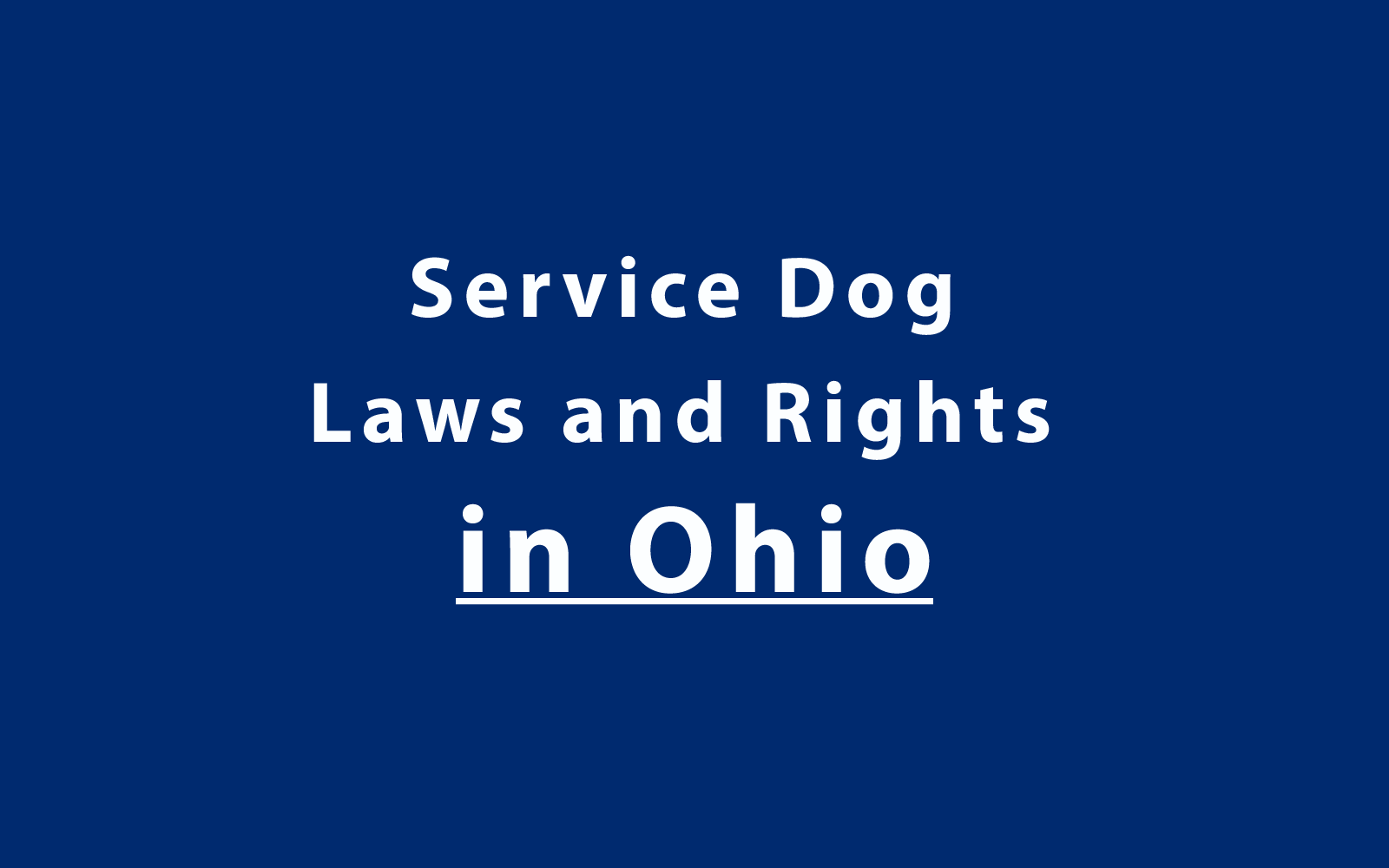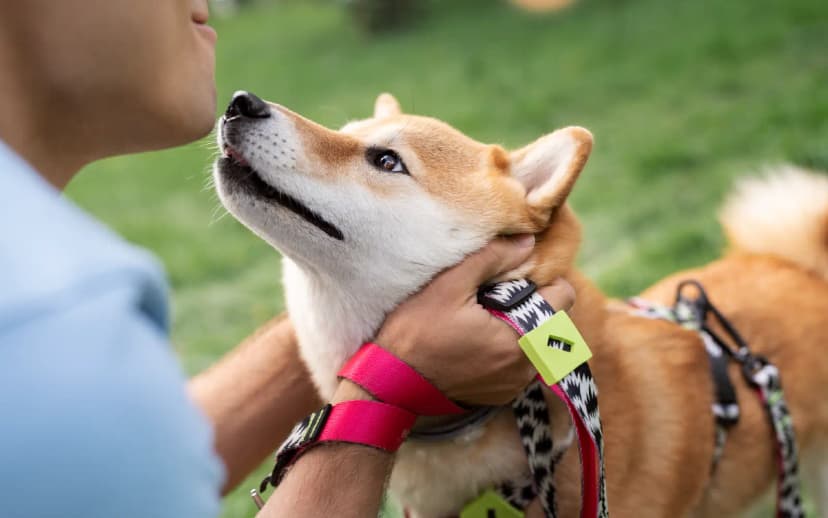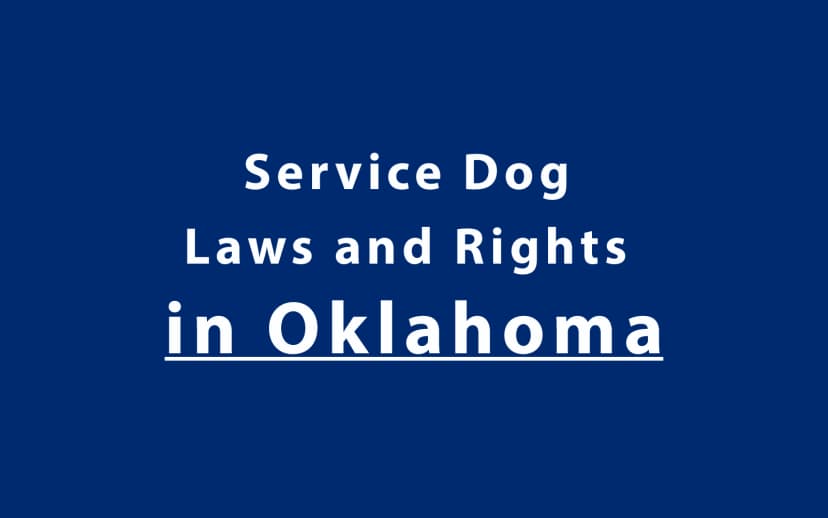Service Dog Laws and Rights in Ohio

Service dogs provide life-changing assistance for people living with disabilities. In Ohio, these specially trained animals help individuals navigate both physical and psychiatric challenges—ranging from mobility support and seizure alerts to interrupting panic attacks or guiding those who are blind.
But with this powerful partnership comes a need to understand and assert the rights that protect service dog handlers. Federal laws like the Americans with Disabilities Act (ADA), Fair Housing Act (FHA), and Air Carrier Access Act (ACAA) provide a foundation, while Ohio state laws strengthen and localize those protections.
Whether you’re training a service dog, living with one, or interacting with service dog teams in public, this 2025 guide explains everything you need to know about legal protections, access rights, and responsibilities in the Buckeye State.
1. What Is a Service Dog Under Ohio Law?
A service dog is defined by the ADA as a dog that is individually trained to perform specific tasks or do work for a person with a disability. The task must be directly related to the individual’s condition—for example:
- Guiding a person who is blind
- Assisting someone with balance issues
- Retrieving items or opening doors
- Alerting to seizures or low blood sugar
- Calming someone during anxiety attacks
- Interrupting self-harming behaviors
Ohio Revised Code § 955.43 and § 4112 adopt the federal ADA definition and explicitly prohibit discrimination against individuals who use service animals.
🐾 Important Distinction: Emotional Support Animals (ESAs) and therapy dogs do not qualify as service animals under the ADA or Ohio law. While ESAs offer comfort, they are not trained to perform specific disability-related tasks and therefore do not receive the same public access protections.
2. Public Access Rights in Ohio
Under both ADA and Ohio Civil Rights Law, individuals with service dogs are granted full access to public accommodations. These include:
- Restaurants, cafes, and retail stores
- Grocery stores and shopping malls
- Theaters, libraries, and museums
- Parks, recreation areas, and beaches
- Hotels and motels
- Government buildings and public offices
- Hospitals, clinics, and medical facilities
- Public transportation (bus, train, taxi, rideshare)
Handler Responsibilities:
- The service dog must be under control at all times (leashed, harnessed, or under voice/signal control).
- The dog must be housebroken, well-behaved, and non-aggressive.
- The handler is responsible for any damage or disruptions caused by the dog.
What Businesses Can Ask:
If the dog’s role is not obvious, staff may ask:
- “Is the dog a service animal required because of a disability?”
- “What task or work has the dog been trained to perform?”
They may not:
- Ask about your medical condition
- Demand documentation
- Require the dog to demonstrate a task
Access may be legally denied if the dog is not under control, poses a direct threat, or causes disruption.
3. Housing Protections in Ohio
Under the Fair Housing Act (FHA) and state housing laws, individuals with disabilities are entitled to reasonable accommodations in housing—even in buildings with “no pets” policies.
Service dog protections include:
- No pet fees, deposits, or monthly pet rent
- No restrictions on breed, weight, or size
- Protection from discrimination or retaliation based on the use of a service animal
Landlords May Request (Only If Not Obvious):
- Confirmation that the tenant has a disability
- Confirmation that the dog performs a disability-related task
They cannot ask for:
- Certification or registration paperwork
- Training history or licensing
- Specific details of your diagnosis
If a landlord refuses a reasonable accommodation, tenants may file complaints with HUD or the Ohio Civil Rights Commission.
4. Employment Rights and Workplace Accommodations
Employees in Ohio who use service dogs are protected under ADA Title I and Ohio’s own anti-discrimination laws enforced by the Ohio Civil Rights Commission (OCRC).
What You Can Request:
- Permission for your service dog to accompany you in the workplace
- Reasonable accommodations related to your disability and your dog’s needs
Employers May Request:
- Documentation from a healthcare provider confirming the need for the service dog
- Engagement in an interactive process to determine the best accommodations
They May NOT:
- Automatically reject your request
- Demand dog certification or task demonstration
- Disclose your medical information
If you are denied accommodations or face discrimination, you can file with:
- The EEOC (Equal Employment Opportunity Commission)
- The Ohio Civil Rights Commission
5. Travel and Transportation Rights
Air Travel
The Air Carrier Access Act (ACAA) guarantees that trained service dogs, including psychiatric service dogs, may fly in the cabin at no additional cost.
Requirements to Fly:
- Submit the U.S. DOT Service Animal Air Transportation Form
- Dog must be well-behaved and under control throughout travel
- Airlines may not impose breed restrictions
Ground Transportation in Ohio:
- Public buses (e.g., COTA, RTA, Metro) must allow service dogs
- Amtrak accepts service dogs in compliance with ADA
- Uber and Lyft drivers must accept service dogs—denial may result in driver deactivation
6. Access to Education: K–12 and Higher Education
K–12 Public Schools
Under IDEA and Section 504, Ohio schools must accommodate students with service dogs. This applies to both physical and psychiatric disabilities.
- Schools may not deny access based on breed or demand registration
- Parents may be required to manage care during the school day unless the student is independent
- Service dogs must be trained and under control
Colleges and Universities
Universities in Ohio must comply with the ADA and provide equal access.
- Students should contact the school’s Disability Services Office
- Institutions may ask for:
- A description of the tasks the dog performs
- Verification of the handler’s need (not diagnosis)
7. Service Dog Training and Registration in Ohio
There is no legal requirement to register or certify a service dog in Ohio. The ADA allows self-training, meaning handlers may train their own dogs.
However, many individuals choose to voluntarily register their dog for convenience, especially when:
- Flying or dealing with housing providers
- Avoiding confrontations in public
- Showing preparedness in access situations
At AssistanceDogPartners.org, we offer:
- Voluntary registration kits with ID cards, certificates, and gear
8. Service Dog Fraud and Misrepresentation
Falsely claiming a dog as a service animal is illegal and unethical.
In Ohio, misrepresenting a non-service animal as a service dog may result in:
- Misdemeanor charges
- Fines or citations
- Civil penalties in housing or transportation cases
Examples of fraud include:
- Using vests or ID cards for untrained pets
- Claiming an ESA is a service animal
- Bringing untrained dogs into no-pet public spaces
Fraud damages public trust and makes access harder for legitimate handlers. Report abuse to business managers or local authorities when appropriate.
9. Local and State Resources for Handlers
Here are key organizations that support service dog users in Ohio:
- Ohio Civil Rights Commission – https://crc.ohio.gov
Handles discrimination complaints for public access, housing, and employment.
- Disability Rights Ohio (DRO) – https://disabilityrightsohio.org
Legal advocacy for individuals with disabilities.
- Ohio Department of Developmental Disabilities (DODD) – https://dodd.ohio.gov
Offers support programs and vocational services.
- Local trainers and assistance dog organizations in Columbus, Cleveland, Cincinnati, Dayton, and Toledo.
Frequently Asked Questions
Q: Do I need to register my service dog in Ohio?
A: No. Registration is not legally required, but optional registration is useful for travel, housing, and public access.
Q: Are psychiatric service dogs protected like guide dogs?
A: Yes. As long as they are task-trained, PSDs have full ADA and Ohio protection.
Q: Can my landlord charge me a pet fee for my service dog?
A: No. Service animals are not considered pets under federal or Ohio housing law.
Q: What if a business refuses to let me in with my service dog?
A: Politely explain your rights. If refusal continues, you can file a complaint with the Ohio Civil Rights Commission or the U.S. Department of Justice.
Conclusion
Ohio provides strong legal protections for individuals who rely on service dogs. Whether you need help with public access, housing, education, or employment, both state and federal laws are designed to uphold your rights.
As a handler, your responsibility is to ensure your dog is well-trained, under control, and task-focused. The law’s responsibility is to ensure your access and dignity are respected.
At AssistanceDogPartners.org, we’re here to support your journey with training, registration, and resources designed to help you thrive. If you’re ready to take the next step:



